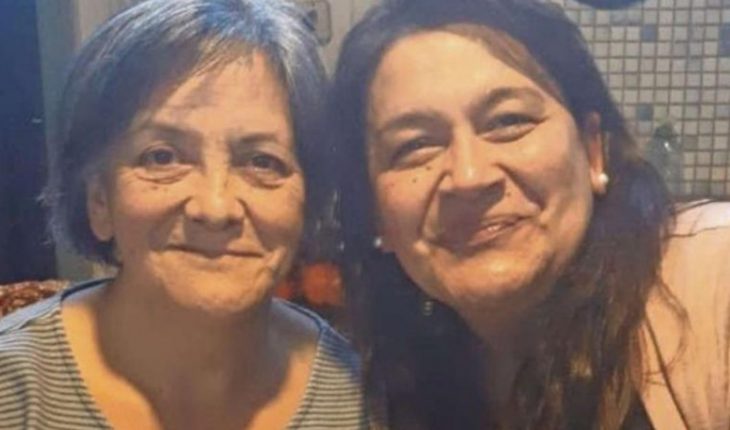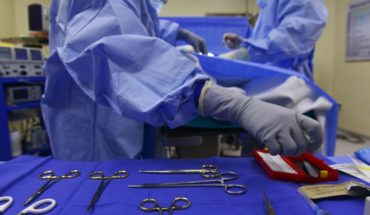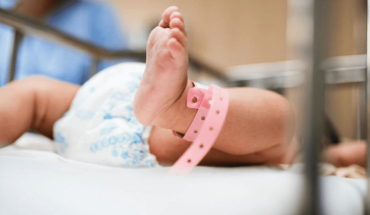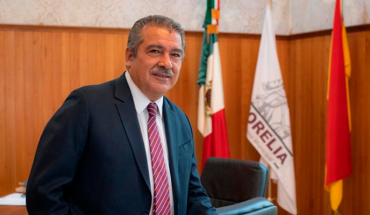Under a cloudy sky and not knowing what might happen, at 2:30 p.m. on a Friday in April Maritza Solís began a life-changing journey. After four years of relentless searching, she had finally found the imprint of a close relative on her biological parents whom she did not meet after being given for newborn adoption.
The trail took her to a house in Puerto Montt. Excited she knocked on the door and was greeted by a woman, who believed she was her mother’s sister. In a dialogue he recalls almost by heart he told him of his search, that by genetic tracking he believed that she knew her parents, that she knew that she had a child on a date similar to her mother and that they lived in the same locality. He assured her that he felt no grudge, that he just wanted to hug his mother after a lifetime without seeing her. At the end, the woman looked at her and said, “Daughter, look no further because I’m your mom.”
“It was a tremendously beautiful moment. I was happy. She would hug me, apologize, tell me that all I expected was for me to one day come knocking on her door. And that’s what I did, I knocked on her door,” says Maritza, now 48, married and with children.
The last time they had met was when Maritza’s mother handed her over as a baby to an adoptive family, convinced by a social worker and a paramedic at the Union hospital, where she was born. They reportedly manipulated the single mother because of her level of vulnerability, as in childbirth she was fearful of her future.
At the age of 12, Maritza learned of his adoption and a decade later looked for his parents, without success. In 2017 she resumed her pesquisa and detected irregularities in the process, such as that in the Civil Registry she was born in her adoptive family’s home, registered with false witnesses.
Like Maritza, the POI has received 404 reports of irregular adoptions that occurred between the 1960s and 1990s in Chile, in a two-year-old case that is in total in search of 673 fraudulent processes of delivering children to other families, although complaints go up daily.
Roberto Gaete, commissioner of the IPO Human Rights Brigade, leads the indeviation in the process led by Judge Jaime Balmaceda. He says a recurring practice was the extraction of children with “deceptions” from social workers, who had mothers sign documents to leave the newborn in the custody of keepers, who then gave them up for adoption, sending several babies abroad.
There are also cases where mothers were informed that their child died at birth, but could never corroborate it.
“They were vulnerable mothers. We are talking about young women, between the age of 15 and 17, alone, lacking family support and no financial capacity to support their children,” says the Commissioner.
The indegatory has thrown out repeating names. Among those in the blind are catchers who sought vulnerable mothers when they came to give birth; midwives; religious; and even judges who authorized the departure abroad of children stolen for adoption.
“There’s not a single organization behind this,” Gaete says. The background suggests that there would be parallel networks responsible for sending minors to a particular country in Europe, and for now a link between them has not been determined, although the IPO suspects that they did communicate given the coincidences in their way of acting.
Among the countries for the adopted children are repeated Sweden, Italy, France, Belgium and the Netherlands, as well as the United States and others that were delivered within Chile.
Beyond justice
In parallel with the police investigation, those affected have started their own search groups to find their missing relatives.
Marisol Rodriguez is one of those seekers. For two decades she has tracked down a possible sister who was told to her mother that she died in childbirth, but whose body was never delivered, which aroused suspicions about what actually happened inside J. J. Aguirre Hospital that winter in 1972.
Her quest led her to meet more people in her situation and in 2014 to co-found the group Sons and Mothers of Silence, dedicated to meeting families separated by irregular adoptions.
The group has a cadastre of more than 25,000 people who are looking for relatives and have managed to reconstruct routes and directions that are repeated among the complaints that come to them.
“There were communities where social workers took all children of childbeabeabe. They were asked for a la carte,” he says.
The group has concreted 230 reunions, of which at least 60 have been virtual with children waiting for an end to the pandemic to travelling to Chile.
The search is conducted by volunteers and geneticists, supported by DNA tests commissioned in the United States and tracking relatives of up to the fifth generation in databases around the world.
That’s how Solís got his pairing a month ago with a cousin in France. Genetic tracking took her to the Chilean part of her family, giving her the address of Puerto Montt where her mother lives who is 10 minutes away from home.
“I worked in retail for many years. We must have stumbled more than ever, crossed words (with her biological mom) and unknowingly,” she says.
Solís today leads the searches in the southern regions and there are stories that have marked her, like a grandmother who ran behind a plane when they took her granddaughter or a woman that an ambulance plane took her baby and never saw her again. “There are terrible cases,” he says.
translated from Spanish: Irregular adoptions: indegatory borders 700 cases and reveals more than one child extraction network
May 24, 2021 |





